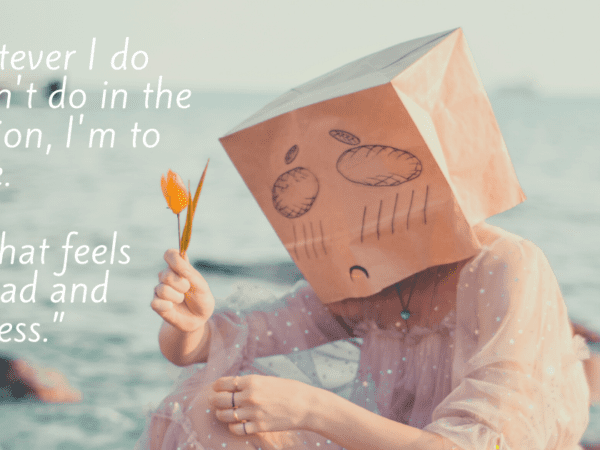“My Focusing partner gets more involved with stories and interpretations than in going inside.”
Sarah writes:
My Focusing partner gets more involved with stories and interpretations than in going inside to discover and follow a felt sense. The actual Focusing experience with her is short in comparison with the narratives. She comes to her own conclusions, but often they seem to come from her mind. I think she would get more out of the sessions if she would focus more on felt senses and be with them. Could you advise me whether I should be doing anything about this?
Dear Sarah,
There is such a well-traveled road into stories and analysis! We are so well practiced in talking about our problems! To stay with a felt sense instead of “talking about” takes a lot of discipline and intention. Having a Focusing partner who will help us with this pause is a great gift. So let me give you some suggestions.
First, make sure this person wants your help. She may be happy with her sessions, and if so, that is her right.
I teach Focusing partners to ask at the start of every session, “What would you like from me as your Focusing Companion?” If your partner answers that question by saying, “Feel free to give me guiding suggestions if you sense I need them,” then you are free to help. (If the partner said, “Just give listening reflections and leave me space,” then you’d better not help.)
My first suggestion is that you always reflect before you give a guiding suggestion. Unless people feel heard, they are unlikely to appreciate guidance. Yes, I mean reflect even stories! You don’t of course reflect the whole story, but rather the point of it, what the person is “getting at.”
Focuser: “Early in my life I had a lot of trouble with speaking up. I was so shy, I couldn’t say a word, even in my family, if there was more than one person in the room. My older brother teased me about it, and of course that made it worse.”
You: “You are remembering how shy you were, and how being teased made it even worse.”
You might need to reflect several times until you reach the point in the story where the person relaxes a little, because what was important was heard. Now is your opportunity to offer a suggestion.
Helping someone stay with a felt sense in the body.
To help someone get a felt sense:
“Maybe now would be a good time to pause and get the feel of that in your body.”
To help someone stay with a felt sense that they have described:
“You might offer that word ‘______’ back to the feeling in your body, and sense if that describes it well, or if another word fits even better.”
To help someone stay with a felt sense even longer:
“See if it’s OK to just stay with that ‘_______’ a while.”
To help someone come back to a felt sense previously described:
“You might sense if that ‘______’ is still there.”
To help someone be patient with staying with a felt sense even when “nothing” is happening:
“Maybe you could sense if there is something there that you can feel but you haven’t quite put it in words yet.”
To help someone who says “I think…” instead of sensing:
“You might take that back inside to that sense of ‘______’ and sense if it fits in there.”



